“Everyone tries to tell you how speed is so important, but it doesn’t matter how fast you are if you’re not there with a lap to go. It’s about how strong you are” – Lee Troop
In 2017 Runner’s Tribe published a book referred to as ‘The Bible of Australian Marathon Running’. This 347-page paperback publication interviews Australia’s 10 fastest ever female and male marathon runners, and dives deep into their training, race preparation, diet and much more.
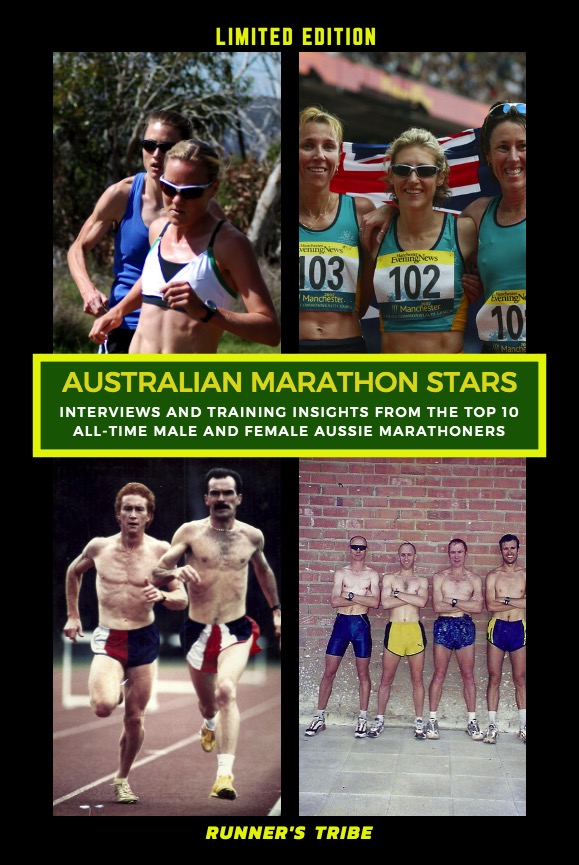
In this exclusive feature article, we bring you some of the coolest snippets from the book; we take a look at some of these amazing athlete’s favourite sessions.
Athletes studied:
- Lee Troop – Something to Prove
- Lisa Weightman – More than just a Marathoner
- Pat Carroll – The True Competitor
- Benita Willis – Our Fastest Ever
- Derek Clayton – Leading the Way
- Robert de Castella – ‘Deeks’ de Master
- Steve Moneghetti – The Inspiration of a Generation
- Lisa Ondieki – Track & Mileage: To the Extreme
- Brad Camp – Complete Dedication
- Jessica Trengove – Genuinely Inspiring
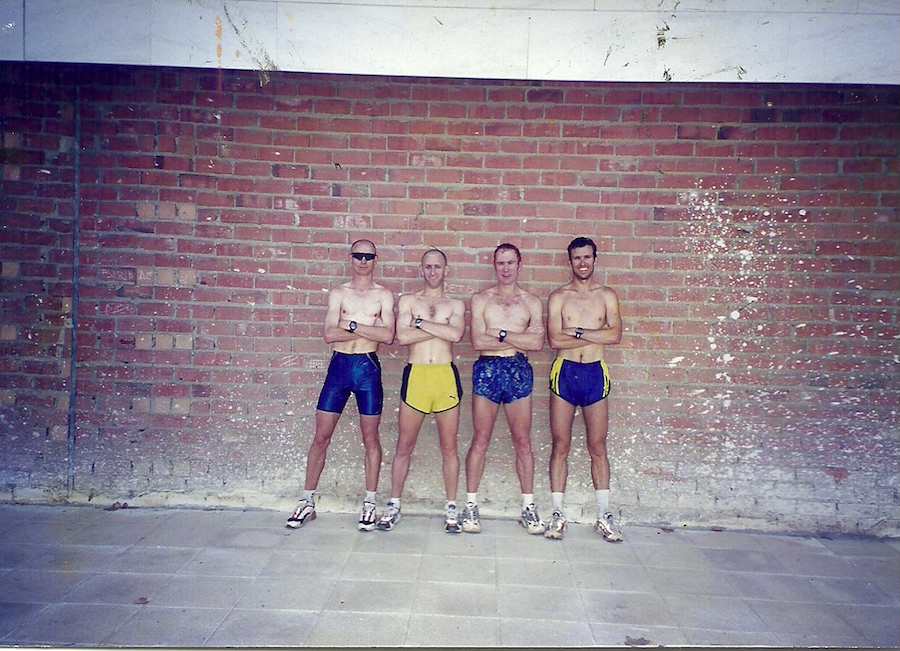
Lee Troop- Something to Prove
“Not having a coach is where I hurt myself a lot. Between 2000 and 2008, someone else could have stepped in and sorted me out.” – Lee Troop (taken from the book ‘Australian Marathon Stars’).
- Coach: Self-coached
- Date of birth: 22 March 1973
- Hometown during career: Geelong/Ballarat
- Personal best: 2:09:49
- Career highlight: Breaking Ron Clarke’s 33-year-old Australian 5,000m record in 1999.
In the book, Australian Marathon Stars, when Troopy was asked his favourite session, he replied:
“My favourite session is hills. I used to drive to Ballarat from Geelong every Saturday for eight years to run one particular course that I loved.
With the hills everything was an all-out effort. Once you are blown you are blown, it’s you versus the hills, 50m to 500m in a 7k loop. Everyone tries to tell you how speed is so important, but it doesn’t matter how fast you are if you’re not there with a lap to go. It’s about how strong you are.”
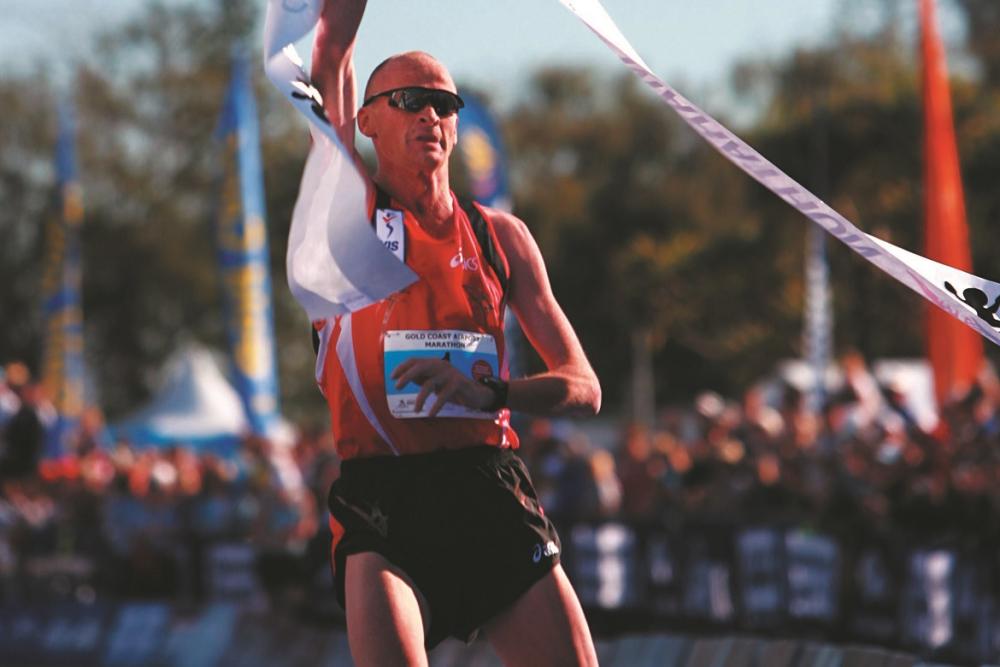
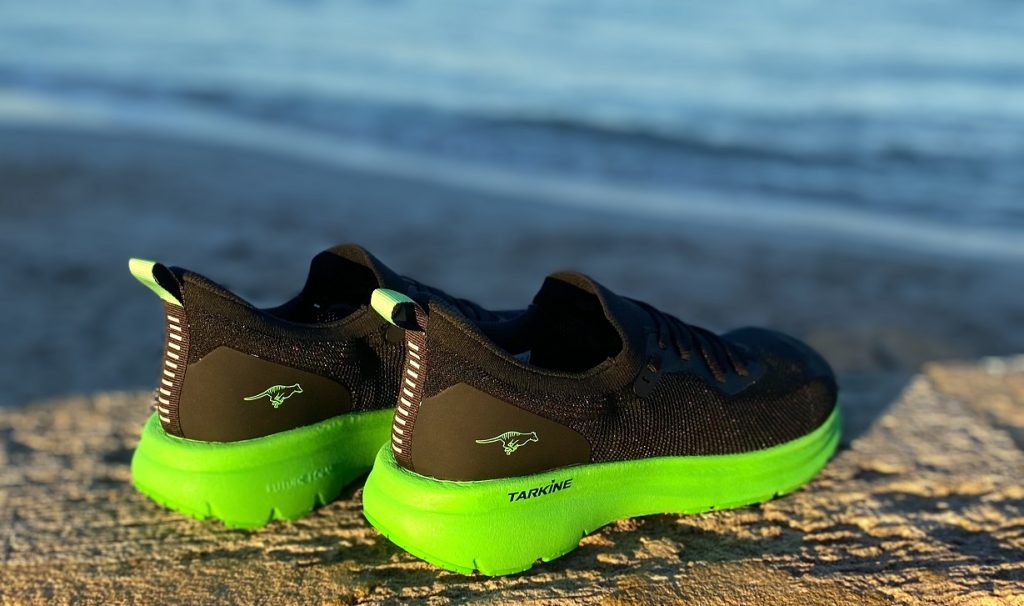
Lisa Weightman– More than just a Marathoner
“My coach Dick Telford is amazing. He is arguably the best marathon coach in Australia and in my eyes, the world. He has taught me so much and without him I would never have taken the steps I have in terms of volume and specific training for the event. – Lisa Weightman (taken from the book ‘Australian Marathon Stars’).
- Coach: Dr Richard Telford
- Date of birth: 16/01/1979
- Hometown: Preston, Victoria
- Personal best: 2:26 (Marathon)
- Career highlights:
- Bronze Medal at 2010 Commonwealth Games
- Three Time Olympian.
- Course Record & Win 2013 Melbourne Marathon.
- Major championships medals: Bronze Medal at 2010 Commonwealth Games (India), Team Bronze Medal at 2008 World Cross Country Championships (Scotland).
- Nickname: Goa
In the book, Australian Marathon Stars, when Lisa was asked her favourite session, she replied:
“4x1600m is a good mix of speed and endurance if you match it with short recoveries!”
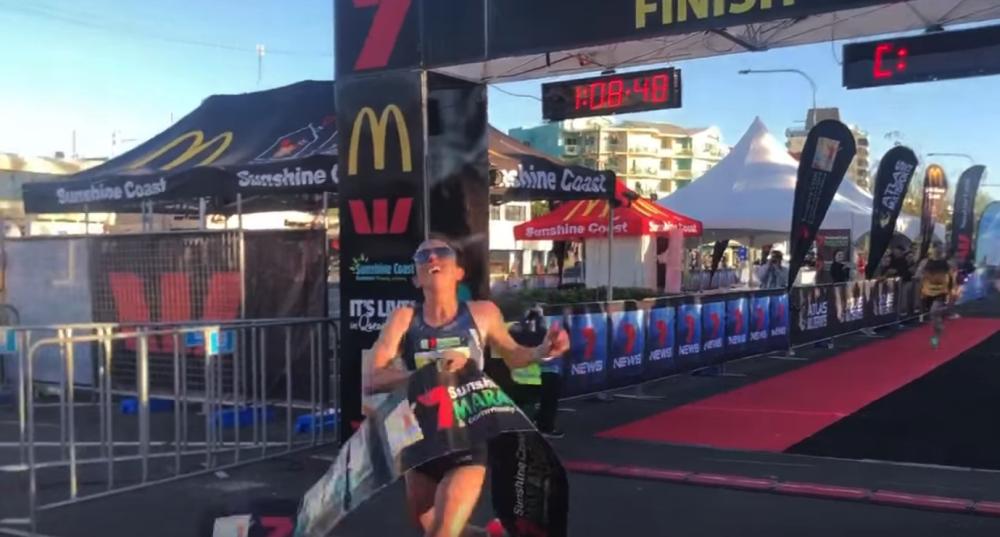
Pat Carroll- The True Competitor
“When in heavy training I would usually run twice a day, seven days a week.” – Pat Carroll (taken from the book ‘book ‘Australian Marathon Stars’).
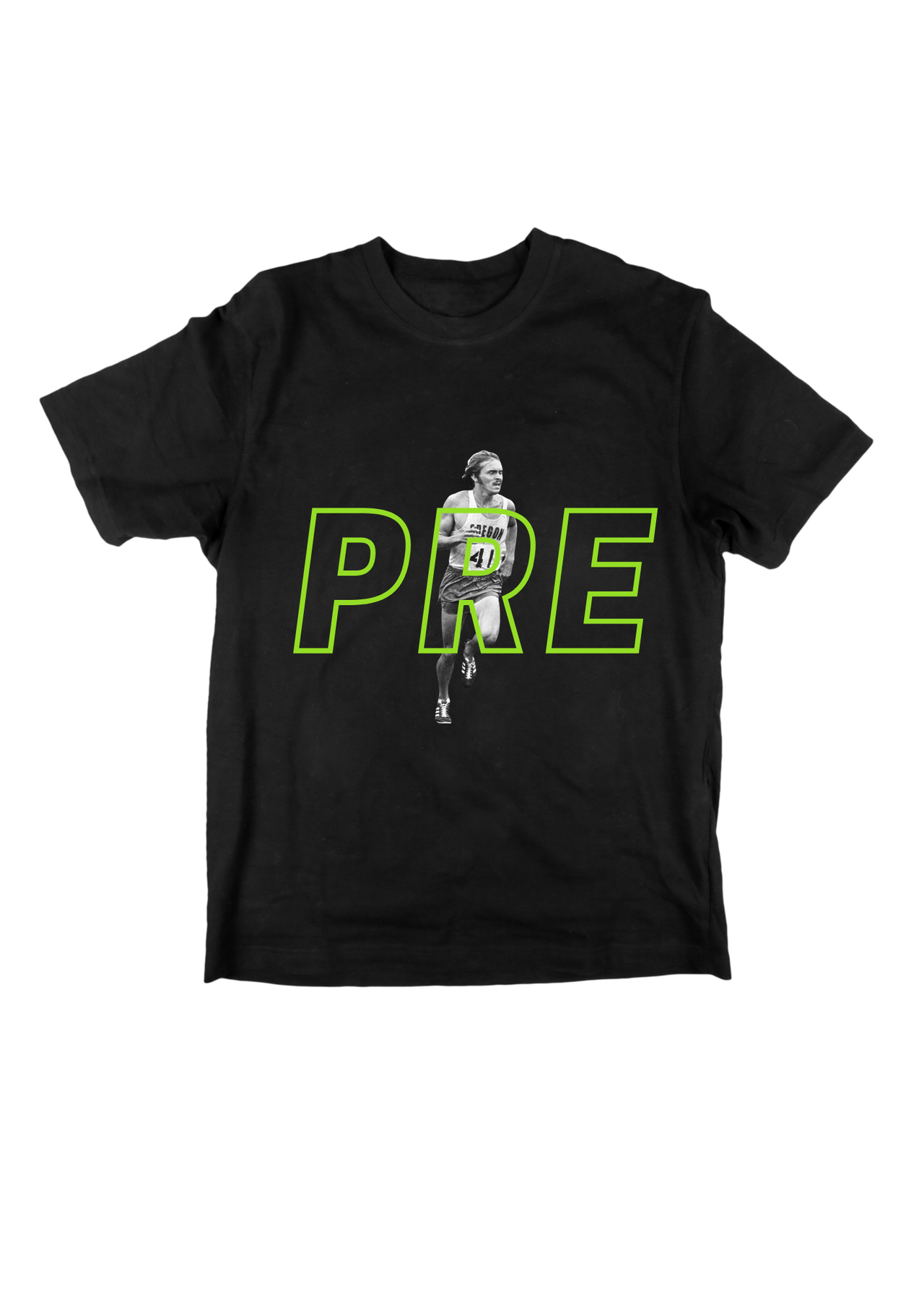
- Coaches: Pat Clohessy, Dick Telford
- Date of birth: 17 August 1961
- Hometown during career: Brisbane until 1988. Then moved to Canberra until 1996
- Date of retirement from elite racing: 1997
- Personal best: 2:09:39
- Career highlight: Winning the 1995 Beppu Marathon in 2:09:39
In the book, Australian Marathon Stars, when Pat was asked his favourite session, he replied:
“Toward the later stages of my career I did this run where I would jog for a while then go into a 15-minute hard effort in which I would really go for it and run as hard as possible. I always started at the same point and knew where my record was. I would always try to better by personal best. I really felt that simple session helped me improve a lot.”
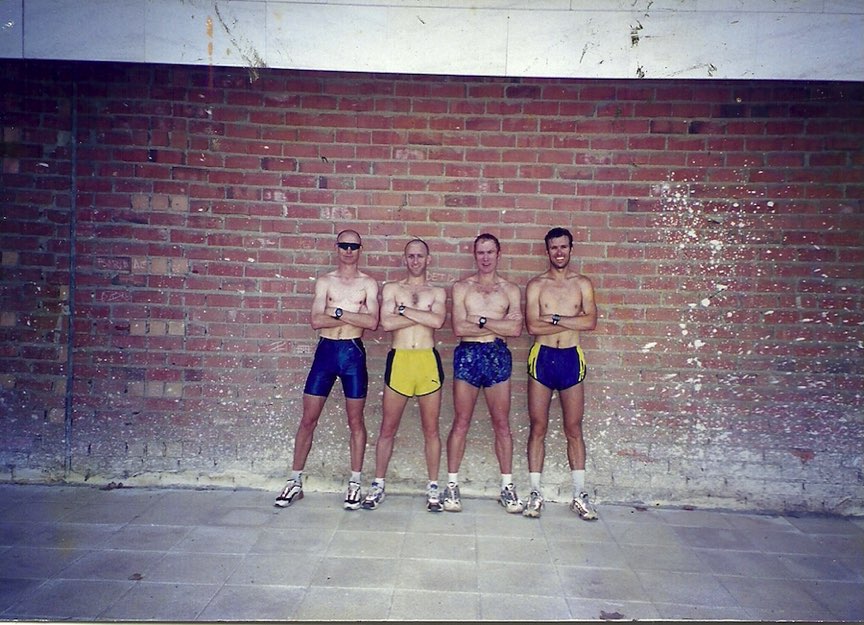
Benita Willis – Our Fastest Ever
“I feel the marathon is a complete challenge for you. Yes, it is a race, but how you prepare, your training, nutrition, mental focus, patience and determination will make or break you.” – Benita Willis (taken from the book ‘Australian Marathon Stars’).
- Coach: Nic Bideau
- Date of birth: 6th May 1979
- Hometown during career:
- Melbourne, Australia
- London, England
- Boulder, USA
- Personal best: 2:22:36
- Career highlights:
- 2004 World Cross Country Champion
- 2003 World Half Marathon Bronze Medallist
- National marathon record in Chicago, 2006
- Major championships medals: 4
- Nickname: ‘B’
In the book, Australian Marathon Stars, when B was asked her favourite session, she replied:
“I did a session of 6x2km on the track with very short recovery and the pace of each 2km got faster and faster. At the end, I’d run a flat out 1km. I knew what times I could do for this and if I got near this, I’d know I was ready for a good one.”
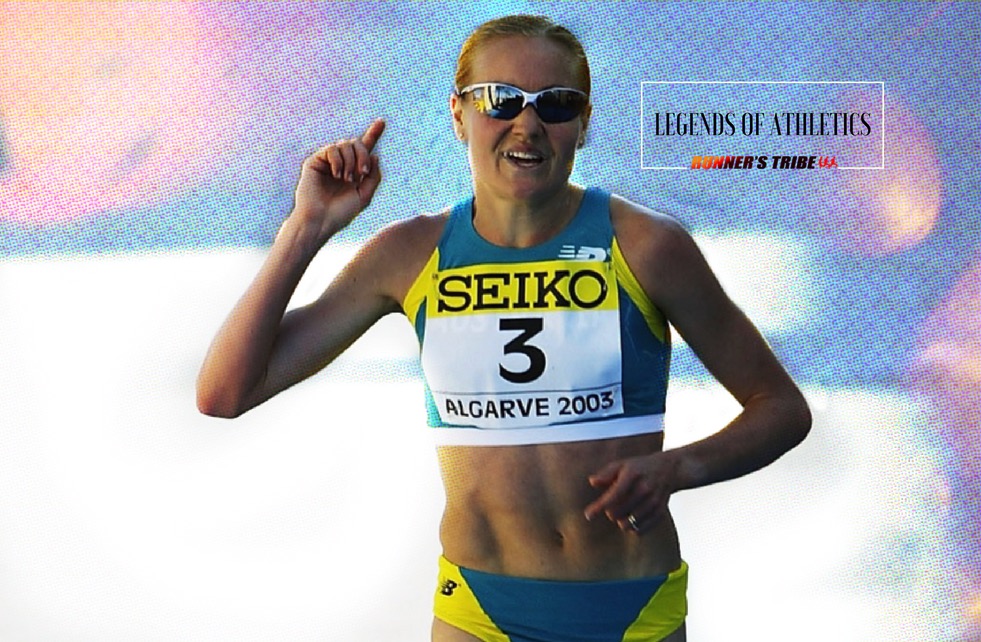
Derek Clayton – Leading the Way
“I think it is important to note that I always ran by feel. The key with training is to push yourself without tearing your body apart.” – Derek Clayton book ‘Australian Marathon Stars’).
- Coach: Self
- Date of birth: 17 November 1942
- Hometown during career: Melbourne
- Date of retirement from running: After the 1974 Commonwealth Games in Christchurch
- Personal best: 2:08:33.6
- Career highlight: His first world record in Fukuoka in 1967 (2:09.36)
In the book, Australian Marathon Stars, when Derek was asked his favourite session, he replied:
“My long run on a Saturday. It helped build strength and stamina as well as mental toughness.”
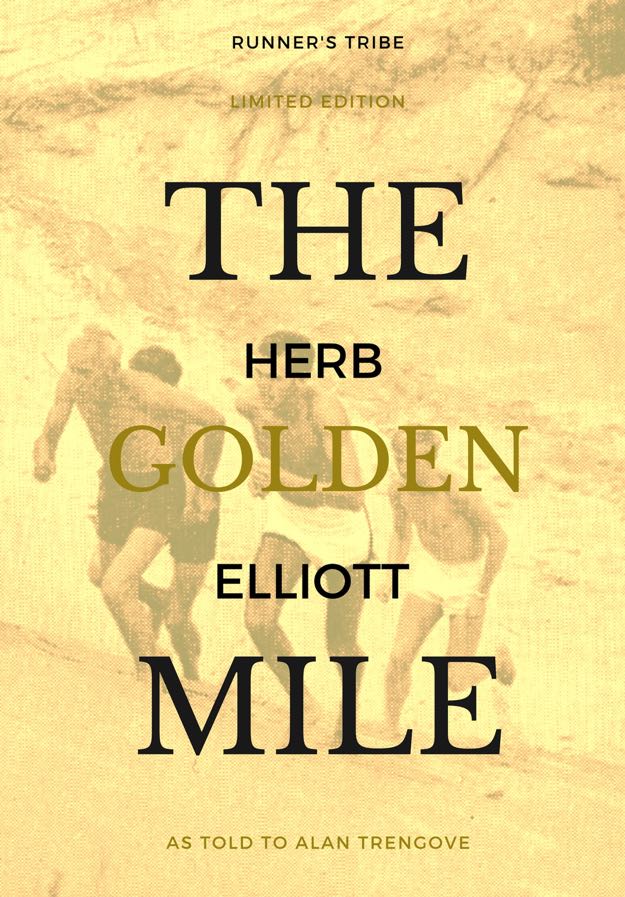
Clayton’s Saturday run consisted of a 15-17-mile run, usually at Ferny Creek in Vitoria. Clayton would run hard, today it would have been referred to as a tempo run.
“I raced the marathon in Turkey 10 days prior to the Antwerp race. It was too much for my body. I really think I would have broken 2:08 in Antwerp if it wasn’t for the Turkey race. After Antwerp I was so sick: I couldn’t eat, and I was vomiting and urinating blood. I was too frightened to see a doctor as I didn’t want to go to a foreign hospital, so I just sat it out.” – Derek Clayton (taken from the book ‘Australian Marathon Stars’).
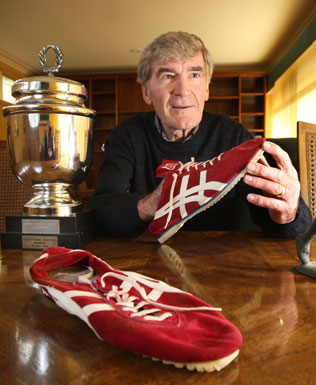
Robert de Castella – ‘Deeks’ de Master
“Being a truly world class marathon runner is more than just being fast over 5km, you need to have your cardiorespiratory, musculoskeletal and neurological pathways (when related to efficiency) all working together. These three areas take many years of hard training to develop.” Rob de Castella (taken from the book ‘Australian Marathon Stars’).
- Coach: Pat Clohessy
- Date of birth: 27/02/1957
- Hometown: Canberra
- Date of retirement from elite racing: 1993
- Personal best: 2:07:51
- Major championships marathon medals:
- Gold 1983 World Championships in Helsinki
- Gold 1982 Brisbane Commonwealth Games
- Gold 1986 Edinburgh Commonwealth Games
‘Deeks’ is famous for his session of 8 by 400m with 200m float jog recovery. However, in the book ‘Australian Marathon Stars’ Deek’s sheds light on another regular session that he did most Saturdays during his base building phase. It involved hills, and lots of it.
From Australian Marathon Stars, the training of Deeks most Saturdays looked like this:
- AM: Usually an 18-20km hill session (hill around 3km long). “I just found the hardest hill possible and ran up and down it.”
- PM: 10km run.
“For the hill session I used to warm up as usual, with a 20-30-minute jog, and then I would find the biggest hill I could, hopefully around 3km long, and just run up time and time again for about 20km in total.” – Rob de Castella
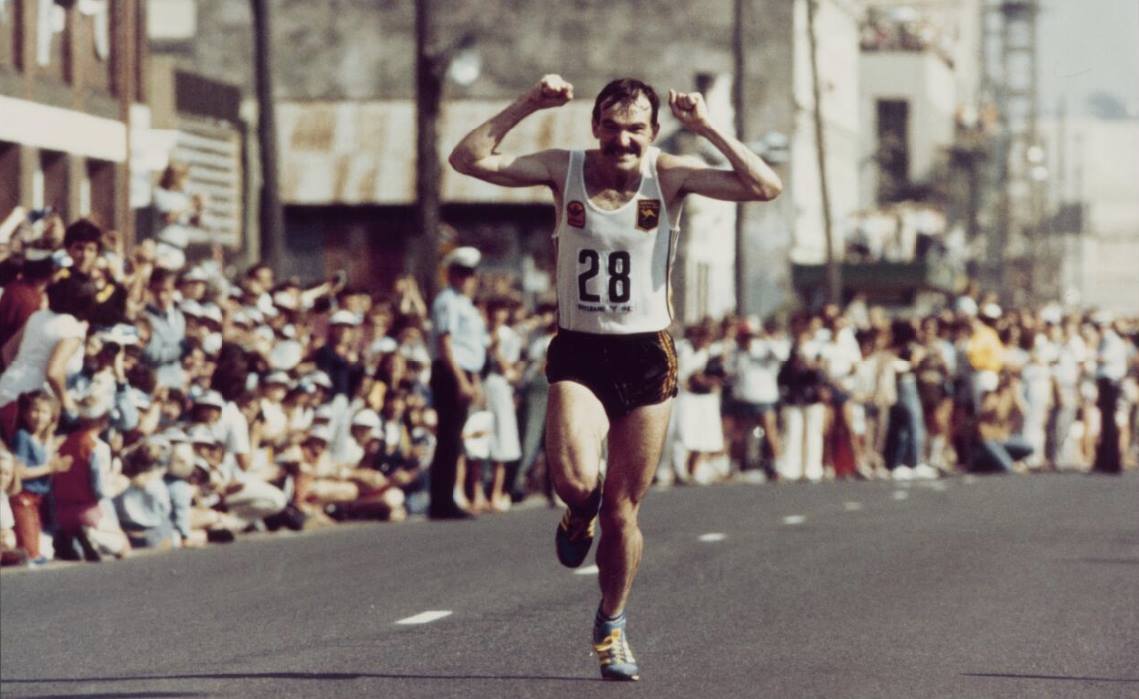
Steve Moneghetti – The Inspiration of a Generation
“I ran as many days as I could. No idea how many in a row, but over 15 years I missed very few days.” – Steve Moneghetti (taken from the book ‘book ‘Australian Marathon Stars’).
- Coach: Chris Wardlaw
- Date of birth: 26/9/1962
- Hometown: Ballarat
- Date of retirement from elite racing: After Sydney 2000 Olympics
- Personal best: 2:08:16
- Major championship medals: Four Commonwealth Games medals (one gold, one silver, two bronze-one marathon, one 10,000m), one World Championships bronze (1997), one World Half Marathon Championships silver (1993).
In the book, Australian Marathon Stars, when Mona was asked his favourite session, he replied:
“My fartlek, people refer to it as ‘Mona Fartlek.’ It is a continuous fartlek that lasts for twenty minutes. The breakdown of it is:
- 2 by 90 seconds surge with 90 seconds float.
- 4 by 60 seconds surge with 60 seconds float.
- 4 by 30 seconds surge with 30 seconds float.
- 4 by 15 seconds surge with 15 seconds float.”
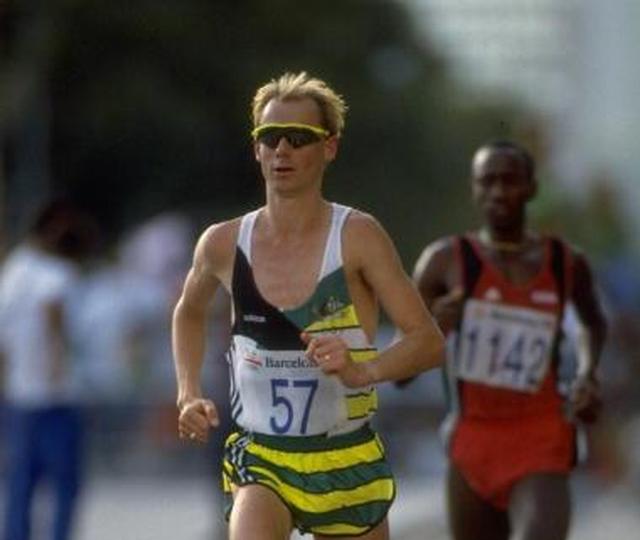
Lisa Ondieki – Track & Mileage: To the Extreme
“I don’t think any one session was key to getting fit since all of the different types of sessions (tempo runs, short intervals, long intervals) complemented each other and were necessary as part of the whole program.” – Lisa Ondieki (taken from the book ‘Australian Marathon Stars’).
- Coaches: Richard Telford, Yobes Ondieki, Ken Martin, Tom Heinonen (University of Oregon distance coach), Dr. John Daly (South Australian Olympic coach)
- Date of birth: 12 May 1960
- Hometowns during career: Phoenix and Flagstaff, Arizona, USA; Canberra, Australia
- Date of retirement from running: Post Atlanta Olympics, 1996
- Personal bests: Marathon, 2hrs. 23mins. 51 secs. 10,000m track: 31 mins. 11 secs.
- Career highlight: Winning New York City Marathon in 1992 & Olympic Silver Medal in 1988
- Major championships medals: 1988 Seoul Olympic Marathon, Silver; 1986 Edinburgh and 1990 Auckland Commonwealth Games Marathon; golds.
In the book, Australian Marathon Stars, when Lisa was asked her favourite session, she replied:
“My favourite session was repeat 400 meters run on the track in spikes. I’d do 20 to 40 of them with a 30 second rest between each 400. Perhaps these brought back fond memories of my days as a kid doing sprint training on the track and dreaming of being an Olympic sprinter. I loved running in spikes!”
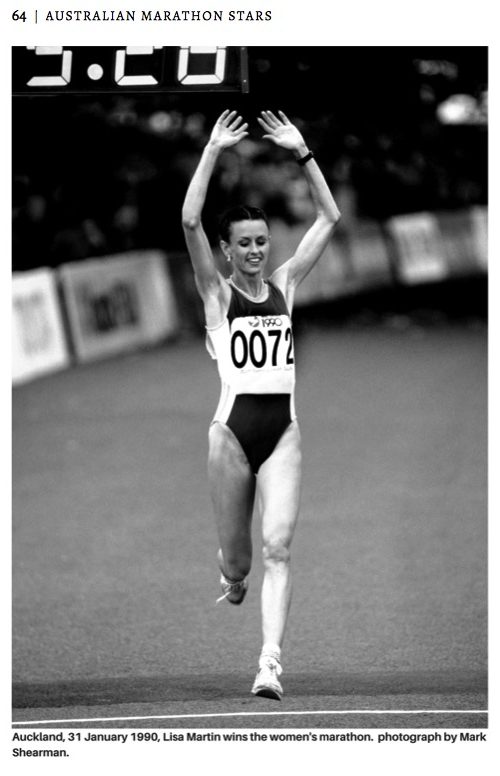
Brad Camp- Complete Dedication
“I raced off 100km per week and mixed in a weight session once every week or two.” – Brad Camp (taken from the book ‘book ‘Australian Marathon Stars’).
- Coach: Tom Kelly, based at the Doncaster Athletic Club in Victoria
- Date of birth: 25 December 1964
- Hometown: The suburb of Doncaster, in Melbourne
- Date of retirement from running: 1993
- Personal best: 2:10:10
- Career highlight: 1988 Olympics in Seoul, South Korea
- Major championship medals: 1989 Australian Marathon Champion
In the book, Australian Marathon Stars, when Brad was asked his favourite session, he replied:
“This is a session my coach Tom Kelly put together. I believe this made me strong physically and mentally:
- Warm up with a 20-minute jog, strides and stretching.
- 2 x 1600m at 72 sec per 400m lap (4 mins 48 sec) 200m recovery easy jog (40 sec) then straight into 2 x 800m (68 sec pace) 200m recovery (40 sec) then 2 x 400m (61/63 sec pace) 200m recovery (40 sec) then 4 x 200m (29 sec each) 200m recovery (40 sec) then 4 x 100m fast with 100m jog recovery. My goal for each of these sessions was to run faster for each effort. When you finished, you knew this did you good!”

Jessica Trengove – Genuinely Inspiring
“The Marathon event is a true test of character. It takes a firm goal, extreme commitment, consistent motivation and support from those around you to prepare for the distance.” – Jessica Trengove (taken from the book ‘book ‘Australian Marathon Stars’).
- Coach: Adam Didyk
- Date of birth: 15th August 1987
- Hometown during career: Naracoorte / Adelaide
- Personal best: Current Marathon PB is 2.30.12
- Career highlight: Bronze medal at the 2014 Commonwealth Games
In the book, Australian Marathon Stars, when Jess was asked her favourite session, she replied:
“A session that I can draw a lot of confidence from in the lead up to a marathon is 3x5km with a few minutes of recovery between each repetition. I run the first one at a pace 5 seconds slower than my marathon pace, the middle one at marathon pace and the final repetition 5 seconds faster than marathon pace. This session gives me a good feel for my target pace and enables me to practice fuelling and hydrating at a relevant speed.”
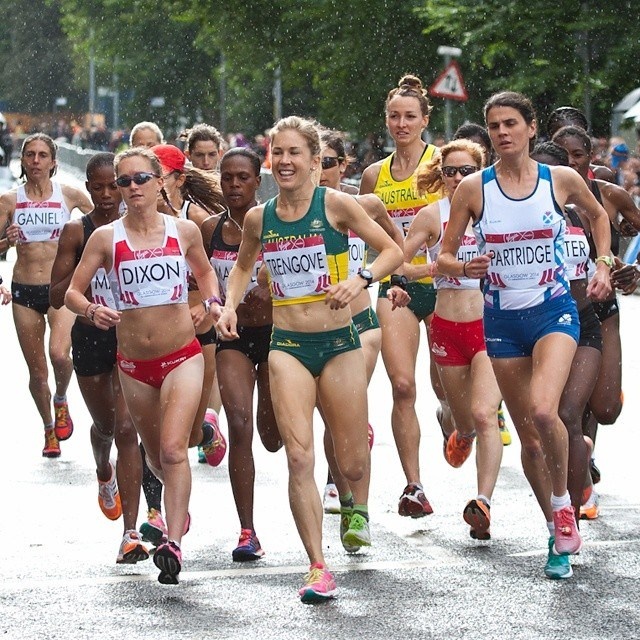
NB: All information has been verified by primary sources.

Note: Background photo by Inside Athletics


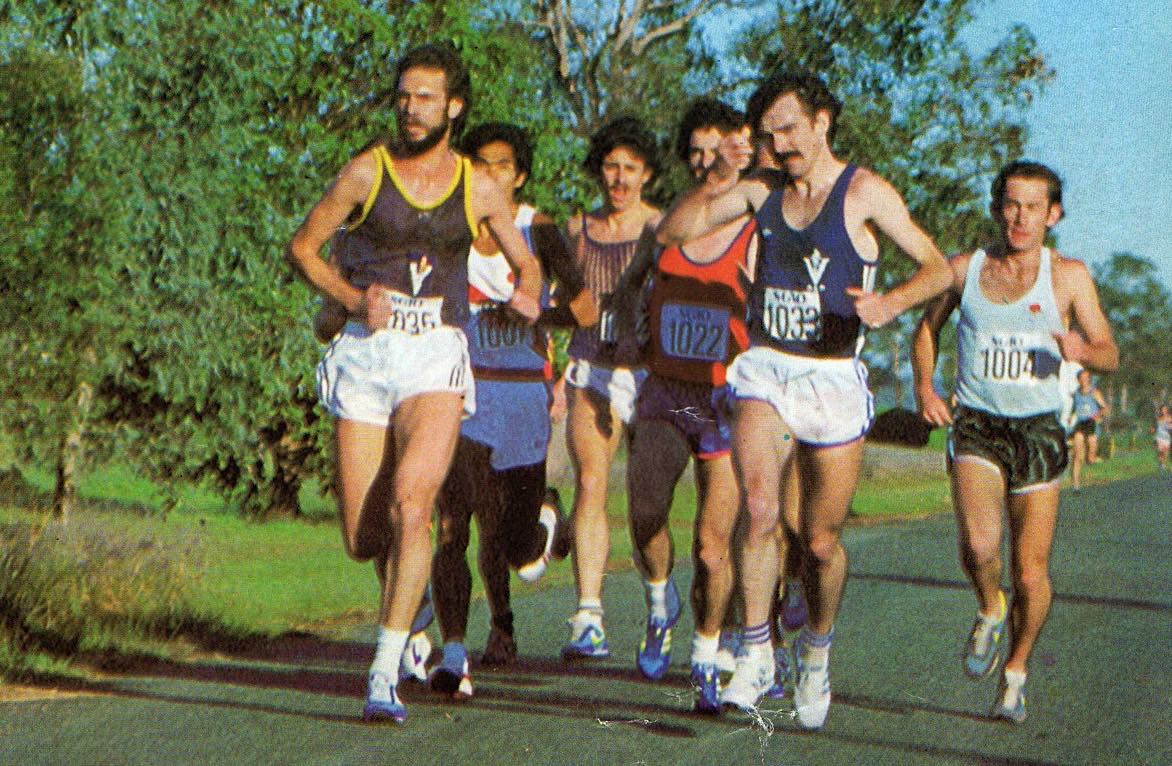



I guess Kerryn McCann is not in the 10 fastest, but she is definitely top of my list for courage.